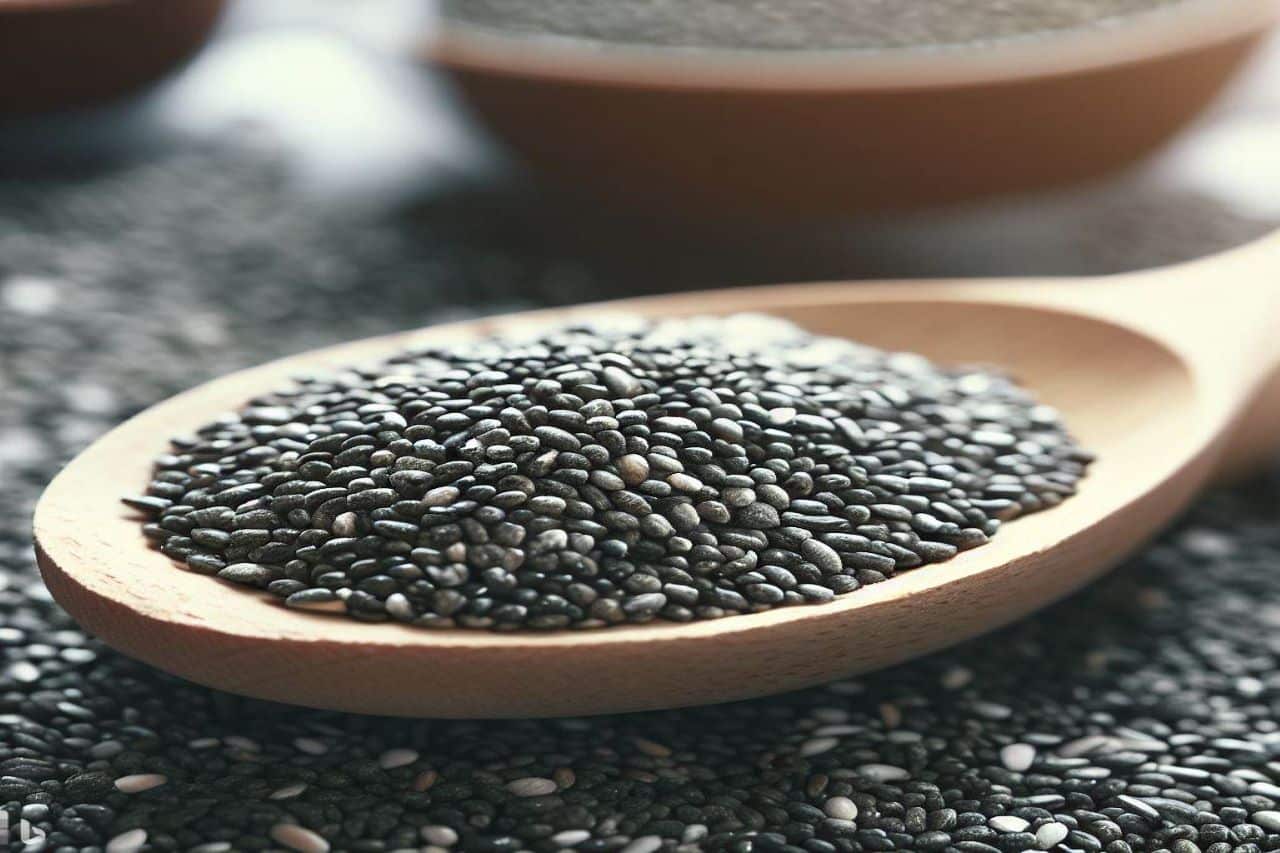Chia seeds are tiny black or white seeds that come from the plant Salvia hispanica L., native to Central America. They have been used for centuries by the ancient Aztecs and Mayans as a source of energy and nutrition. Today, chia seeds are widely available and popular for their many health benefits. In this blog post, we will explore some of the reasons why you should add chia seeds to your diet.
Chia Seeds Are Highly Nutritious
One of the main benefits of chia seeds is that they are highly nutritious. Just one ounce (28 grams or 2 tablespoons) of chia seeds contains:
- 138 calories
- 4.7 grams of protein
- 8.7 grams of fat, mostly omega-3 fatty acids
- 11.9 grams of carbs, mostly fiber
- 14% of the Daily Value (DV) for calcium
- 12% of the DV for iron
- 23% of the DV for magnesium
- 20% of the DV for phosphorus
- 12% of the DV for zinc
- 15% of the DV for vitamin B1 (thiamine)
- 16% of the DV for vitamin B3 (niacin)
Chia seeds also contain antioxidants, which protect the fats in the seeds from going rancid and also help fight free radical damage in your body. Free radicals are molecules that can cause aging and diseases like cancer if they accumulate in your body.
Chia Seeds Are Rich in Fiber
Another benefit of chia seeds is that they are rich in fiber, which is important for digestive health and blood sugar control. More than 80% of the carbs in chia seeds are fiber, which means they have a very low glycemic index and do not raise your blood sugar levels quickly after eating them.
Fiber also helps you feel full longer, which can help you control your appetite and weight. Additionally, fiber feeds the beneficial bacteria in your gut, which produce short-chain fatty acids (SCFAs) that support colon health and reduce inflammation.
Chia Seeds Are a Great Source of Omega-3 Fatty Acids
Chia seeds are also a great source of omega-3 fatty acids, which are essential for heart health, brain function, and skin health. About 75% of the fats in chia seeds are omega-3s, mainly alpha-linolenic acid (ALA), which your body can convert to EPA and DHA, the more active forms found in fish oil.
Omega-3s have anti-inflammatory effects and can help lower blood pressure, cholesterol levels, and triglycerides. They can also improve mood, memory, and cognitive performance. Moreover, omega-3s can help balance the ratio of omega-6 to omega-3 fatty acids in your body, which is important for preventing chronic diseases like heart disease, cancer, and inflammatory disorders.
Chia Seeds Are Good for Bone Health
Chia seeds are also good for bone health because they contain minerals like calcium, magnesium, and phosphorus, which are essential for building and maintaining strong bones. A 25g portion of chia seeds provides about 158mg of calcium, which is comparable to a glass of milk. Calcium is not only important for bone health but also for muscle contraction, nerve transmission, and blood clotting.
Magnesium and phosphorus are also important for bone health because they help regulate calcium metabolism and bone formation. Magnesium also plays a role in over 300 enzymatic reactions in your body, including energy production, protein synthesis, and DNA repair. Phosphorus is also involved in energy metabolism and cell membrane function.
How to Use Chia Seeds
Chia seeds are very versatile and easy to use. You can eat them raw or soak them in water or other liquids to form a gel-like consistency. You can also grind them into a powder or use them as an egg substitute in baking.
Some of the ways you can use chia seeds are:
- Sprinkle them on top of salads, yogurt, oatmeal, or smoothies.
- Make chia pudding by mixing chia seeds with milk or plant-based milk and a sweetener of your choice. Refrigerate overnight and enjoy with fruits or nuts.
- Add them to baked goods like muffins, bread, cookies, or pancakes for extra fiber and protein.
- Use them to thicken soups, sauces, or dressings by adding a few tablespoons of chia seeds and letting them sit for a few minutes.
- Make chia jam by cooking chia seeds with mashed berries and a sweetener of your choice. Store in the fridge and use it as a spread or topping.
Conclusion
Chia seeds are a superfood that can provide many health benefits. They are highly nutritious, rich in fiber, omega-3s, antioxidants, and minerals. They can help improve your digestive health, blood sugar control, heart health, brain function, and bone health. They are also easy to use and can be added to various recipes. Try adding some chia seeds to your diet today and see how they can boost your health and wellness.
Disclaimer: This blog post is for informational purposes only and should not be considered as medical advice. Consult your doctor before making any dietary changes or taking any supplements.
FAQs
Q: How many chia seeds should I eat per day?
A: There is no official recommendation for how much chia seeds you should eat per day, but a common dosage is 1–2 tablespoons (15–30 grams). This amount provides a good balance of nutrients and is unlikely to cause any side effects.
Q: Do I need to soak chia seeds before eating them?
A: You don’t need to soak chia seeds before eating them, but soaking them can make them easier to digest and enhance their nutritional value. Soaking chia seeds in water or other liquids creates a gel-like substance that can help you feel full longer and slow down the absorption of sugar in your blood.
Q: Can chia seeds help me lose weight?
A: Chia seeds may help you lose weight by increasing your fiber intake, which can help you feel full longer and reduce your calorie intake. They may also help improve your metabolism and blood sugar control, which can affect your weight. However, chia seeds are not a magic bullet for weight loss and should be consumed as part of a balanced diet and lifestyle.
Q: Are chia seeds safe for everyone?
A: Chia seeds are generally safe for most people, but they may cause some allergic reactions or interactions with certain medications. If you have a history of food allergies, especially to sesame or mustard seeds, you should consult your doctor before eating chia seeds. If you take blood thinners, blood pressure medications, or diabetes medications, you should also check with your doctor before eating chia seeds, as they may affect your blood clotting or blood sugar levels.











